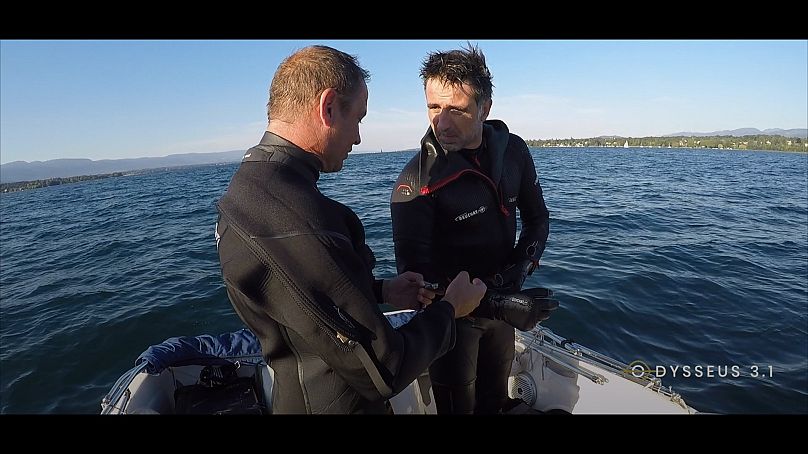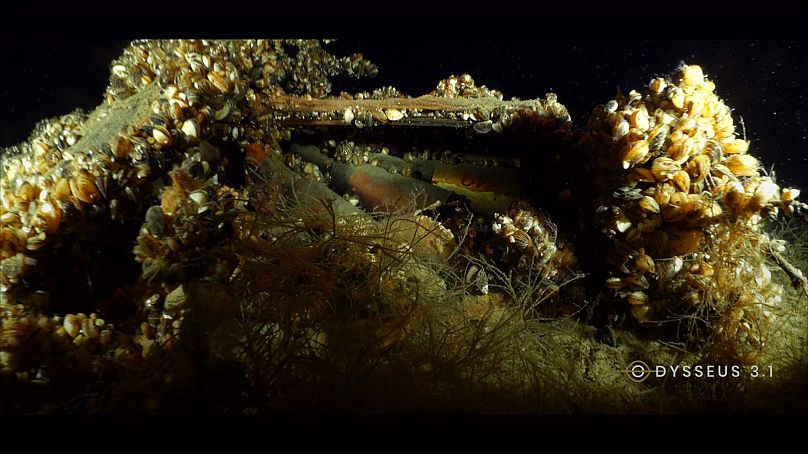Explosive discovery: bombs, grenades and shells are sleeping at the bottom of Lake Geneva
Live shells, grenades and bombs lie at the bottom of Lake Geneva in Switzerland.
Swiss authorities say the ammunition — dumped after World War II — is not a threat because it is buried in sediment and enclosed in chests.
But a French diving association challenged that narrative on Friday, claiming its members had seen open ammunition boxes lying not under sediment but on the lake bed.
"We are concerned about there being a drinking water intake and gas pipeline near the crates," said Lionel Rard, president of Odysseus 3.1, an association which works to protect aquatic environments.
"Moreover, we do not know what state of preservation the ammunition is in,” he added.
Why were shells, grenades and bombs dumped in Lake Geneva?
It is estimated up to 1,500 tonnes of live ammunition were dumped into the lake between the late 1940s and 1960.
In the 1930s, increased tensions in Europe pushed countries into an arms race; even the neutral ones like Switzerland.
In the run-up to World War II and after Nazi Germany's annexation of Austria, Switzerland began increasing its production of ammunition and weapons.
The risk for the Swiss Confederation became clearer as Adolf Hitler’s occupation plan of the neutral alpine nation, named the Tannenbaum plan, was discovered.
Surrounded by Axis powers, Switzerland erected fortifications at its borders, creating a mixed fortress of concrete and mountains that became famous as the "national redoubt".
After the defeat of Nazi Germany and the end of WWII in Europe, Switzerland found itself with a large number of weapons and munitions.
Initially, these were stored in warehouses but, in 1946 and 1947, two ammunition dump explosions caused the death of more than a dozen people and extensive damage.
Another solution was suggested: immersion, as examined by the Swiss historian Elodie Charrière in her research.
So, form the late 1940s until the end of the 1960s, the Swiss army dumped more than 8,000 tonnes of ammunition in several lakes in the country.
The ammunition dumps in Lake Geneva were not only carried out directly by the army but also by a private company, Hispano-Suiza, whose factory in Geneva had produced munitions during the war.
These operations occurred in an area of more than 10 km², in the most south-west, narrower and shallower part of Lake Geneva.
What do campaigners say?
"We are divers who have been used to training at Lake Geneva for years. We heard about mysterious ammunition that had been submerged," said Rard.
"So, we did several dives. During the last one, we went down in an area between 45 and 55 metres. We were three divers. We had a visibility of 80 metres.
There were many, many crates of ammunition. And they were not under sediment, but laying at the bottom of the lake. Most of them were gutted. It was very easy to identify shells and bombs of all kinds."
Odysseus 3.1 believes that these munitions represent a real danger to the population and the environment.
What do Swiss authorities say?
The Swiss Federal Department of Defence, Civil Protection and Sports (DDPS) has repeatedly stated that these dumped munitions do not release harmful substances and that their recovery is unnecessary.
But after Odysseus 3.1 held a press conference on Friday, the matter has been put in the spotlight.
Salima Moyard, a socialist politician from the Grand Council of Geneva, was at the association's media briefing.
She has initiated a discussion of the issue at a parliamentary session on December 12.













